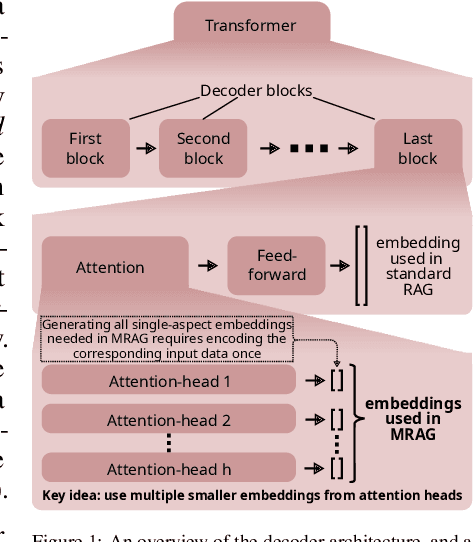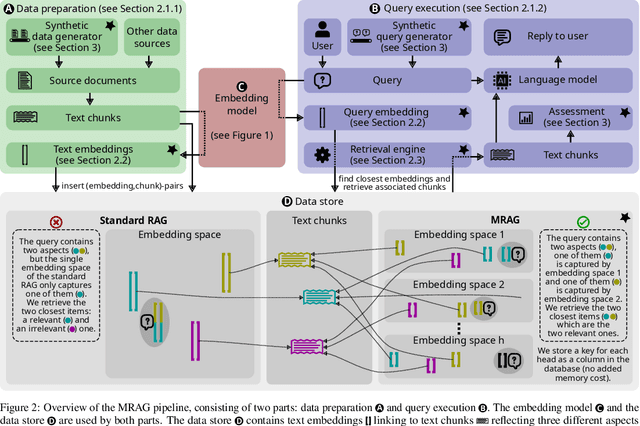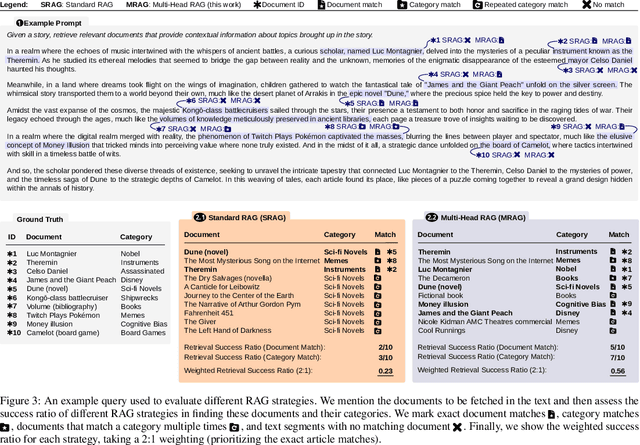Joanna Gajda
Multi-Head RAG: Solving Multi-Aspect Problems with LLMs
Jun 07, 2024



Abstract:Retrieval Augmented Generation (RAG) enhances the abilities of Large Language Models (LLMs) by enabling the retrieval of documents into the LLM context to provide more accurate and relevant responses. Existing RAG solutions do not focus on queries that may require fetching multiple documents with substantially different contents. Such queries occur frequently, but are challenging because the embeddings of these documents may be distant in the embedding space, making it hard to retrieve them all. This paper introduces Multi-Head RAG (MRAG), a novel scheme designed to address this gap with a simple yet powerful idea: leveraging activations of Transformer's multi-head attention layer, instead of the decoder layer, as keys for fetching multi-aspect documents. The driving motivation is that different attention heads can learn to capture different data aspects. Harnessing the corresponding activations results in embeddings that represent various facets of data items and queries, improving the retrieval accuracy for complex queries. We provide an evaluation methodology and metrics, synthetic datasets, and real-world use cases to demonstrate MRAG's effectiveness, showing improvements of up to 20% in relevance over standard RAG baselines. MRAG can be seamlessly integrated with existing RAG frameworks and benchmarking tools like RAGAS as well as different classes of data stores.
Graph of Thoughts: Solving Elaborate Problems with Large Language Models
Aug 21, 2023



Abstract:We introduce Graph of Thoughts (GoT): a framework that advances prompting capabilities in large language models (LLMs) beyond those offered by paradigms such as Chain-of-Thought or Tree of Thoughts (ToT). The key idea and primary advantage of GoT is the ability to model the information generated by an LLM as an arbitrary graph, where units of information ("LLM thoughts") are vertices, and edges correspond to dependencies between these vertices. This approach enables combining arbitrary LLM thoughts into synergistic outcomes, distilling the essence of whole networks of thoughts, or enhancing thoughts using feedback loops. We illustrate that GoT offers advantages over state of the art on different tasks, for example increasing the quality of sorting by 62% over ToT, while simultaneously reducing costs by >31%. We ensure that GoT is extensible with new thought transformations and thus can be used to spearhead new prompting schemes. This work brings the LLM reasoning closer to human thinking or brain mechanisms such as recurrence, both of which form complex networks.
 Add to Chrome
Add to Chrome Add to Firefox
Add to Firefox Add to Edge
Add to Edge